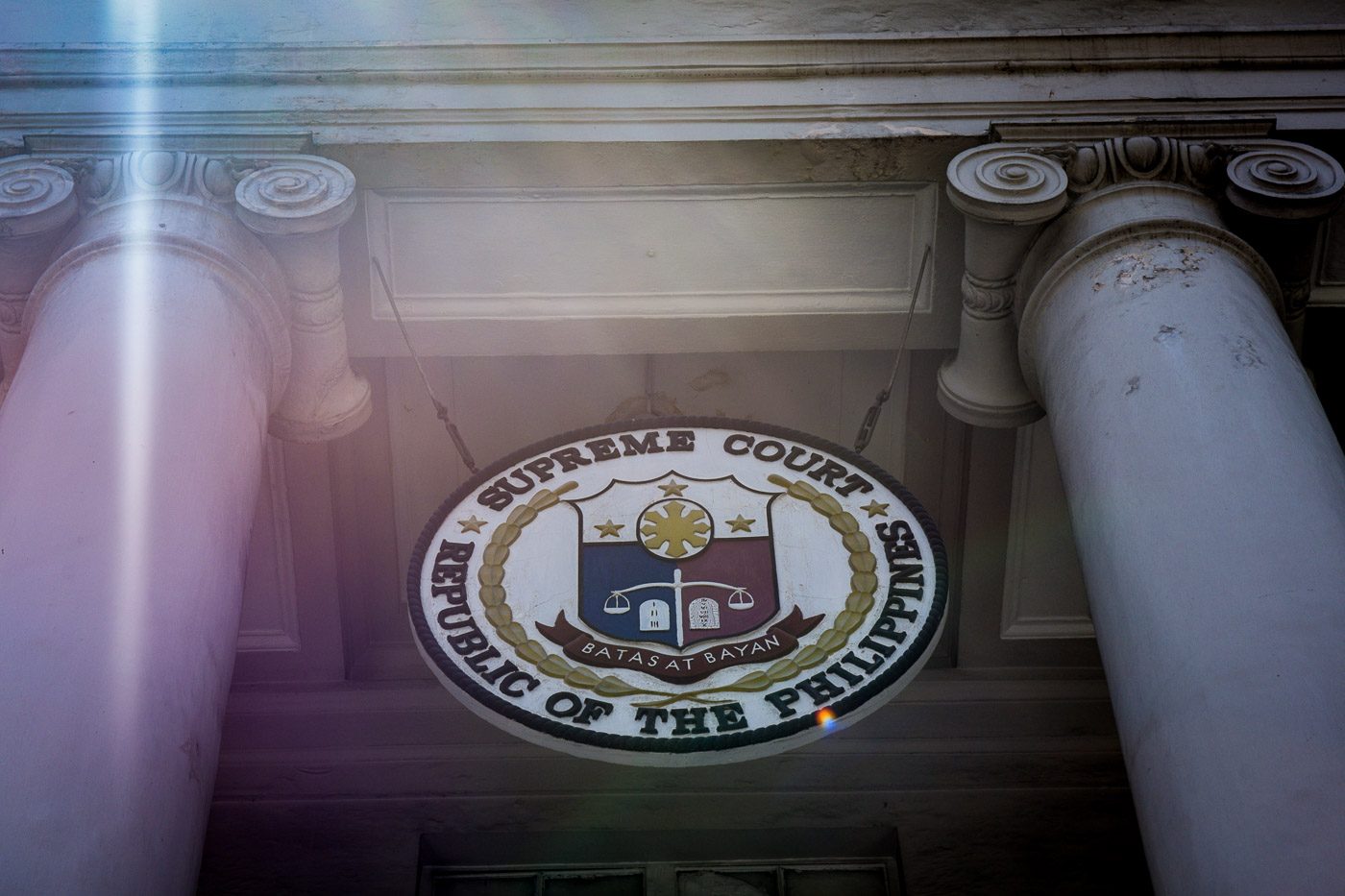SUMMARY
This is AI generated summarization, which may have errors. For context, always refer to the full article.

MANILA, Philippines – The National Union of Peoples’ Lawyers (NUPL) has asked the Supreme Court to reverse its decision on President Rodrigo Duterte’s Boracay closure order, citing the SC’s grounds for declaring as unconstitutional the 2011 Department of Justice (DOJ) travel ban on Gloria Arroyo.
The NUPL filed on March 13 its Motion for Reconsideration (MR) appealing to reverse the 11-2 en banc decision that validated the legality of Duterte’s Proclamation No. 475, which placed areas in Boracay under a state of calamity, and restricted the travel of tourists to the island for its rehabilitation.
The en banc said in that ruling that the proclamation did not violate the constitutional right to travel because it was only temporary, lasting for only 6 months.
“Hence, if at all, the impact of Proclamation No. 475 on the right to travel is not direct but merely consequential; and, the same is only for a reasonably short period of time or merely temporary,” said the majority in the ponencia written by Associate Justice Mariano del Castillo in February.
Comparisons with De Lima ruling
As pointed out by Associate Justice Benjamin Caguioa in his strongly-worded dissent, the High Court did not care about a travel restriction being consequential when it voided the watchlist orders issued by then-justice secretary Leila e Lima against against Arrroyo.
When challenged before the Court, the Department of Justice (DOJ) under De Lima had argued that the travel restriction on Arroyo was “merely incidental and necessary to advance and protect a different state interest.”
Only courts can issue hold departure orders, but the DOJ under then-Secretary Leila de Lima stopped Arroyo from traveling based on its own department circular.
Similarly, the Duterte administration closed down Boracay based on its own proclamation and likewise told the Court in the Boracay case that restricting travel was just a consequence of trying to achieve the greater purpose, which was to rehabilitate Boracay.
In the De Lima case, the SC said:
The purpose, no matter how commendable, will not obliterate the lack of authority of the DOJ to issue the said issuance. Surely, the DOJ must have the best intentions in promulgating DOJ Circular No. 41, but the end will not justify the means. To sacrifice individual liberties because of a perceived good is disastrous to democracy.
In the Boracay case, the 11SC justices said:
Undoubtedly, Proclamation No. 475 is a valid police power measure. To repeat, police power constitutes an implied limitation to the Bill of Rights, and that even liberty itself, the greatest of all rights, is subject to the far more overriding demands and requirements of the greater number.
The right to travel
The NUPL noted that when the SC voided De Lima’s watch list orders, the justices said that the DOJ circular must be based on an enabling law.
“The DOJ miserably failed to establish the existence of the enabling law that will justify the issuance of the questioned circular,” the SC said in the De Lima case.
The NUPL pointed out that Proclamation 475 also did not have an enabling law.
“Even restrictions created to achieve a different state interest have to be compliant with the requirements prescribed under Section 6 of Article III, to wit: an enabling legislation restricting the right to travel on the grounds of national security, public safety, or public health,” the NUPL said.
It added, ”In that light, the closure of Boracay Island under Proclamation No. 475 ought to be struck down as unconstitutional for failing to meet the said requirements.”
Caguioa and fellow dissenter Associate Justice Marvic Leonen had pointed out the same.
Both justices said that the proclamation cited the Disaster Risk Reduction and Management Act when the said law empowered local actors – and not the president – to declare a state of calamity.
“The Court did not hesitate to protect the Constitution against the threat of executive overreach in (the De Lima case). The refusal to do so now is nothing less than bewildering,” said Caguioa in his dissent.
The NUPL reminded the SC to uphold the Bill of Rights and heed its own words written only a year ago.
“Be that as it may, no objective will ever suffice to legitimize the desecration of a fundamental right. To relegate the intrusion as negligible in view of the supposed gains is to undermine the inviolable nature of the protection that the Constitution affords,” it said. – Rappler.com
Add a comment
How does this make you feel?
There are no comments yet. Add your comment to start the conversation.